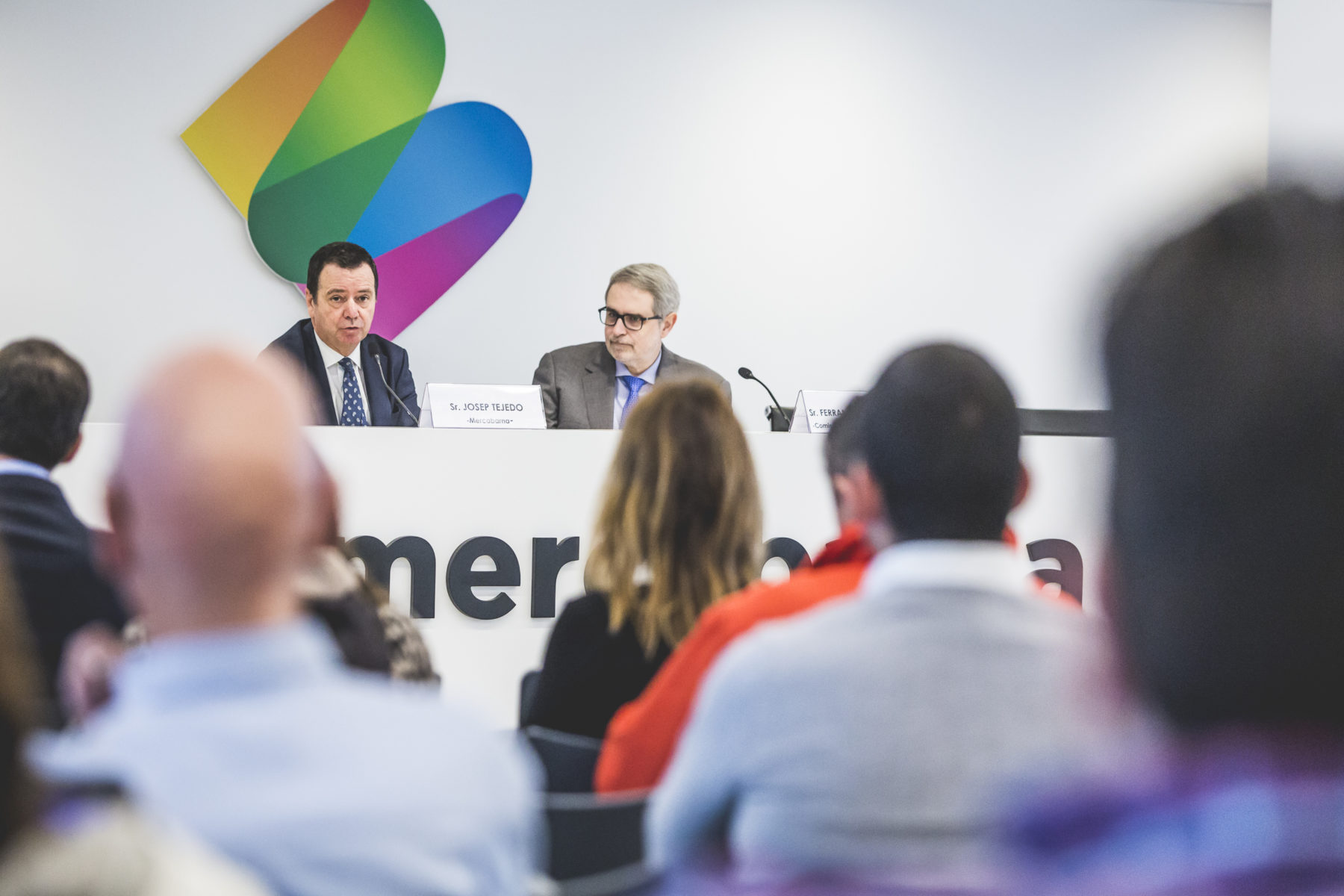Author: Ron van der Ploeg
BARCELONA, Spain: Faced with the great impact of plastic on the environment, the growing awareness of citizens and new European regulations on this subject, the Mercabarna flower and food wholesale market, just outside Barcelona, held a conference entitled ‘Plastic packaging in food distribution: regulations, challenges and strategies’. The event, held on February 27th, 2019, brought together around one hundred professionals, including packaging and wholesale market experts.
It is estimated that 40% of plastic produced is used for packaging, with the food and beverage industry being among the biggest plastic polluters. The giant Mercabarna wholesalemarket, serving Barcelona and its surrounding area, put the use of plastics firmly on the agenda acknowledging that plastic waste is devastating for ecosystems and is a serious problem.
Industry stakeholders, gathered in the Flowers and Food cluster Mercabarna Barcelona, and leaders from the public and private sector shared their experiences and concerns around the phasing out or regulation of plastic products at the event during which consultancy firm MarketADD revealed the first results of its ‘Plastic in the food distribution chain’ study. Mercabarna’s general manager, Mr Josep Tejedo, highlighted “the importance of the conference as a platform for the exchange of ideas between experts and businessmen when it comes to possible ecological alternatives in fresh food packaging”.
Ferran Tarradellas, EU representative in Barcelona, set out EU regulations on packaging (EU Directive 2018/852) and its strategy to slow the flow of plastic at its source by encouraging recirculation so that plastic can continue to be an important asset for the economy while alleviating its most negative consequences for the environment.
The food sector is facing a huge challenge now that Brussels is waging war against plastic waste by implementing a plan that aims to make all packaging reusable or recyclable by 2030. The sector might directly feel the impact of the new EU directive for disposable plastics -2018/172 (COD)- which includes measures to reduce the use or expand the collection capacity of consumer packaging used for example for ‘take away’ food. The use of trays, fast food wrappers, plastic glasses and drinking bottles is known for being uncontrolled.
Adrià Laguna, Project Manager at MarketAAD was at hand to outline the different uses and applications of plastic in the food sector, its function and the challenges posed by the management of plastic waste in the food distribution value chain. She shared some conclusions of the so-called Porex Challenge, a joint study undertaken by Mercabarna and Hispack on the use and opportunities of expanded polystyrene management for each of Mercabarna’s three sub sectors -fruit and vegetables, meat and fish.
Xavier Pascual, director of Hispack, Fira de Barcelona’s leading packaging trade show, explained how Hispack is the place to see the latest innovations and eco-design solutions.
The conference also offered the opportunity to hear some stories of successful waste management. Taking part in a round table debate was Aleix Fortuny, Senior Packaging Engineer at BIP-Leitat, a leading European technology centre for industrial process management, who underlined the need for better information on how long it takes to break down various plastics while pointing to the technical feasibility of recycling certain materials.
Àlex Brossa, director of the Packaging Cluster, an organisation that brings together companies from the packaging and packaging-value chain, said that sustainability can help companies to gain a competitive edge, with the new regulatory changes being a lever to tackle challenges to implement differential solutions in the packaging and distribution of products.
The conference concluded with a round among Mercabarna tenants who have already begun to incorporate more sustainable elements into their packaging. Some of these entrepreneurs spoke about the difficulties they encounter when looking for suppliers of unified packaging components (trays, films, labels…) and certifying bodies who work with these new packages. They expressed their concerns about the availability of sustainable packaging that is both economically viable and perfectly safe to the consumer.
In the face of all this, the present food distribution companies urged the authorities to speed up the innovation process in order to anticipate the regulatory framework and end consumers, who ask for sustainable options, but are not always well-informed on the subject.
Pictured left to right Mercabarna’s general manager, Mr Josep Tejedo and Ferran Tarradellas, EU representative in Barcelona.




















